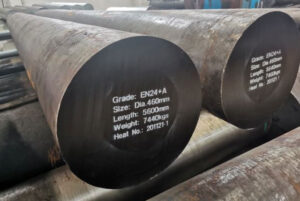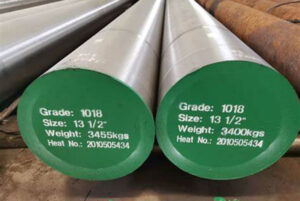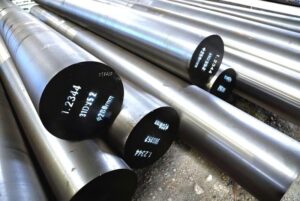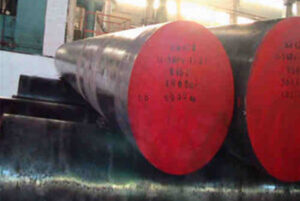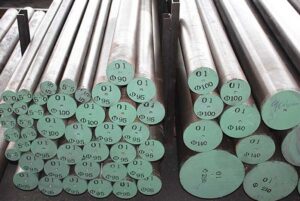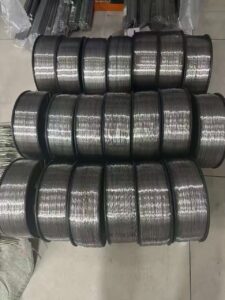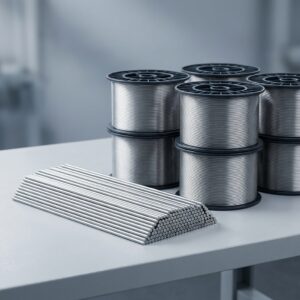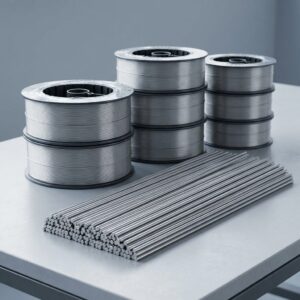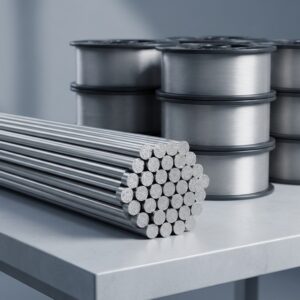Overview
Special Steel 18CrNiMo7-6 and 17CrNiMo6 (1.6587) Alloy Steel are widely known for their exceptional mechanical properties, including high strength, toughness, and wear resistance. These steels are primarily used in the manufacturing of heavy-duty components such as gears, shafts, and other machinery parts that require high surface hardness and core toughness. The unique chemical composition and heat treatment processes give these steels their extraordinary capabilities, making them indispensable in various industrial applications.
Types, Composition, Properties, and Characteristics
Types of Special Steel 18CrNiMo7-6 and 17CrNiMo6 (1.6587) Alloy Steel
| Type | Description |
|---|---|
| 18CrNiMo7-6 | A high-strength alloy steel with excellent hardenability and toughness, ideal for gear manufacturing. |
| 17CrNiMo6 (1.6587) | An alloy steel known for its high core strength and wear resistance, often used in heavy-duty applications. |
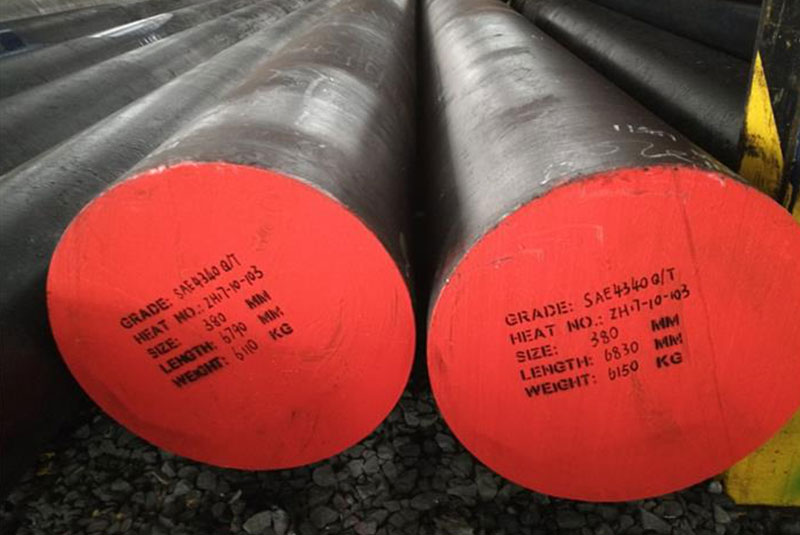
Chemical Composition
Chemical Composition of Special Steel 18CrNiMo7-6 and 17CrNiMo6 (1.6587) Alloy Steel
| Element | 18CrNiMo7-6 (%) | 17CrNiMo6 (1.6587) (%) |
|---|---|---|
| Carbon (C) | 0.15-0.21 | 0.14-0.19 |
| Silicon (Si) | 0.10-0.40 | 0.10-0.40 |
| Manganese (Mn) | 0.50-0.90 | 0.50-0.90 |
| Chromium (Cr) | 1.50-1.80 | 1.50-1.80 |
| Nickel (Ni) | 1.40-1.70 | 1.40-1.70 |
| Molybdenum (Mo) | 0.25-0.35 | 0.20-0.30 |
Mechanical Properties
Properties and Characteristics of Special Steel 18CrNiMo7-6 and 17CrNiMo6 (1.6587) Alloy Steel
| Property | 18CrNiMo7-6 | 17CrNiMo6 (1.6587) |
|---|---|---|
| Tensile Strength | 1000-1300 MPa | 1000-1300 MPa |
| Yield Strength | 800-1000 MPa | 800-1000 MPa |
| Elongation | 10-15% | 10-15% |
| Impact Toughness | High | High |
| Hardness (after heat treatment) | 58-62 HRC | 58-62 HRC |
| Case Depth | 1.5-3.0 mm | 1.5-3.0 mm |
Characteristics
- High Hardenability: Both steels exhibit excellent hardenability, allowing for deep hardening of large components.
- Superior Wear Resistance: The high chromium and molybdenum content provide exceptional wear resistance, making them ideal for components subjected to heavy friction.
- Tough Core: Even with a hard surface, these steels maintain a tough core, which is crucial for parts experiencing heavy loads and impacts.
- Good Machinability: Despite their high strength, these steels are relatively easy to machine, ensuring efficient manufacturing processes.
Applications and Uses
Applications of Special Steel 18CrNiMo7-6 and 17CrNiMo6 (1.6587) Alloy Steel
| Application | Description |
|---|---|
| Gear Manufacturing | Ideal for gears due to high surface hardness and core toughness. |
| Shafts and Axles | Used in shafts and axles for their high strength and durability. |
| Heavy Machinery Parts | Suitable for parts in heavy machinery due to their wear resistance and toughness. |
| Automotive Components | Utilized in critical automotive parts like transmission components. |
| Aerospace Industry | Applied in aerospace for components requiring high strength-to-weight ratio. |
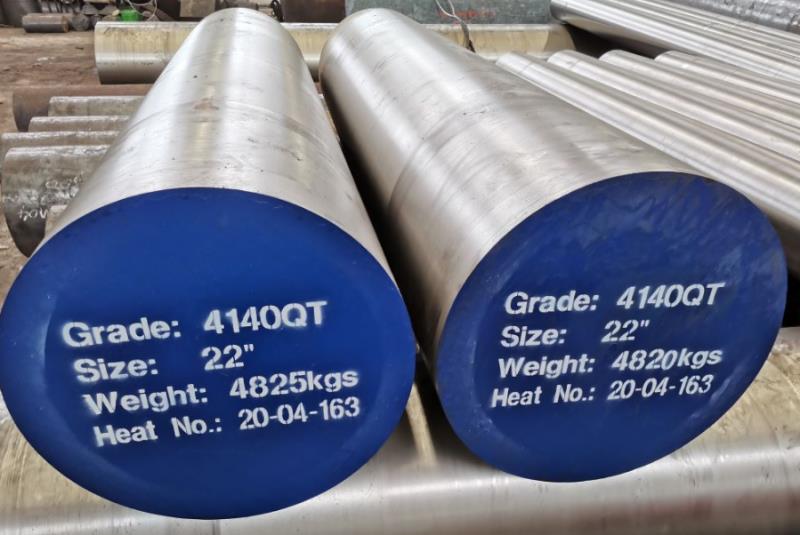
Specifications, Sizes, Grades, and Standards
Specifications and Sizes for Special Steel 18CrNiMo7-6 and 17CrNiMo6 (1.6587) Alloy Steel
| Specification | 18CrNiMo7-6 | 17CrNiMo6 (1.6587) |
|---|---|---|
| Standard | DIN EN 10084 | DIN EN 10084 |
| Available Sizes | Round bars: 20mm to 500mm diameter | Round bars: 20mm to 500mm diameter |
| Plate Thickness | 10mm to 200mm | 10mm to 200mm |
| Heat Treatment | Carburized, hardened, and tempered | Carburized, hardened, and tempered |
| Delivery Condition | Annealed or quenched and tempered | Annealed or quenched and tempered |
Grades and Standards
Grades and Standards of Special Steel 18CrNiMo7-6 and 17CrNiMo6 (1.6587) Alloy Steel
| Grade | Standard | Description |
|---|---|---|
| 18CrNiMo7-6 | DIN EN 10084 | High-grade alloy steel for carburizing |
| 17CrNiMo6 (1.6587) | DIN EN 10084 | High-grade alloy steel with excellent toughness |
Suppliers and Pricing Details
Suppliers and Pricing of Special Steel 18CrNiMo7-6 and 17CrNiMo6 (1.6587) Alloy Steel
| Supplier | Location | Pricing (per kg) | Contact Information |
|---|---|---|---|
| Steel World Ltd. | Germany | $4.50 – $6.00 | [email protected] |
| Alloy Steel Corp. | USA | $5.00 – $7.00 | [email protected] |
| Global Steel Inc. | China | $3.80 – $5.50 | [email protected] |
| Premium Alloys | UK | $4.80 – $6.20 | [email protected] |
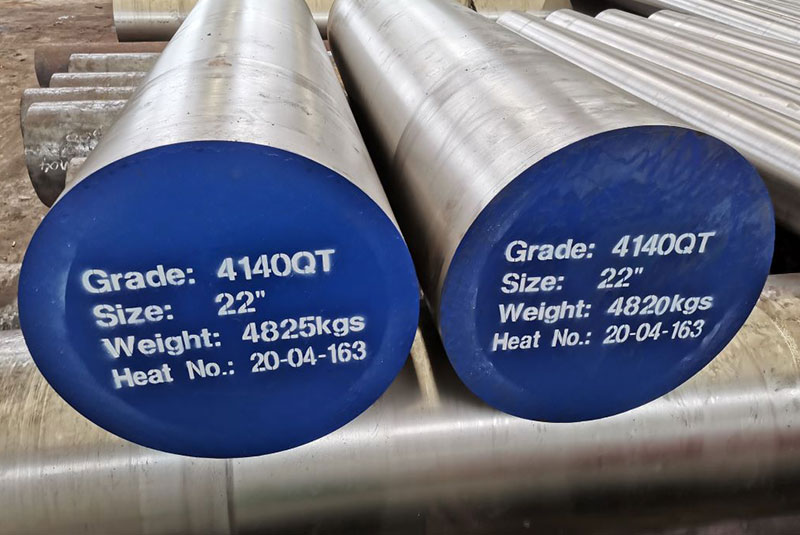
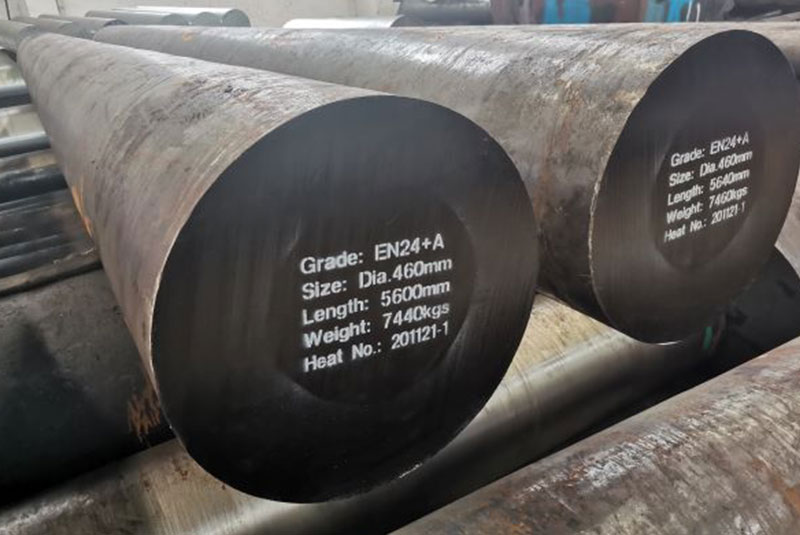

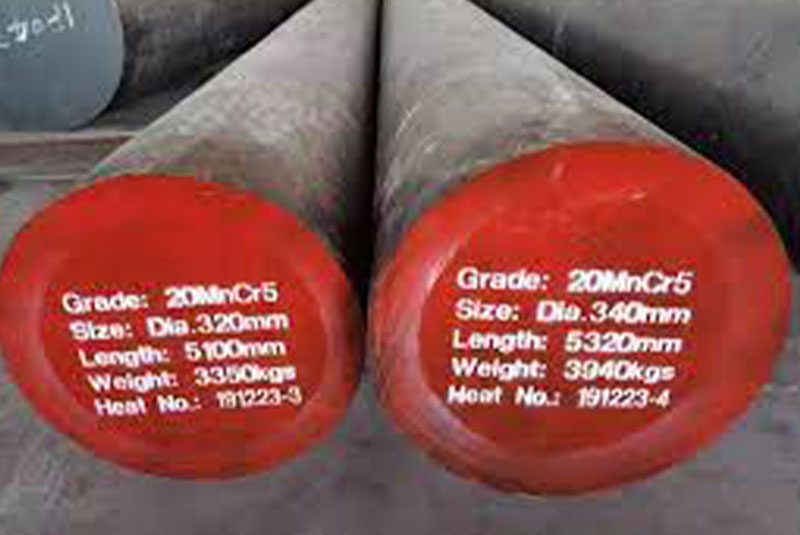
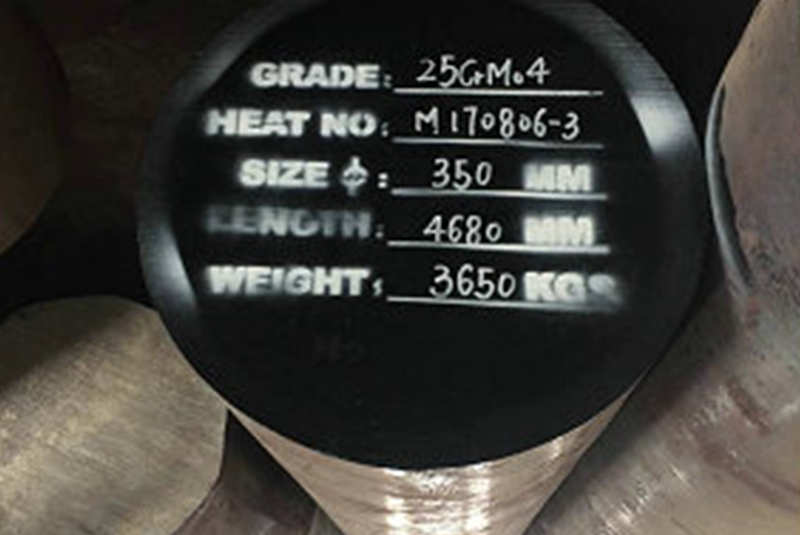
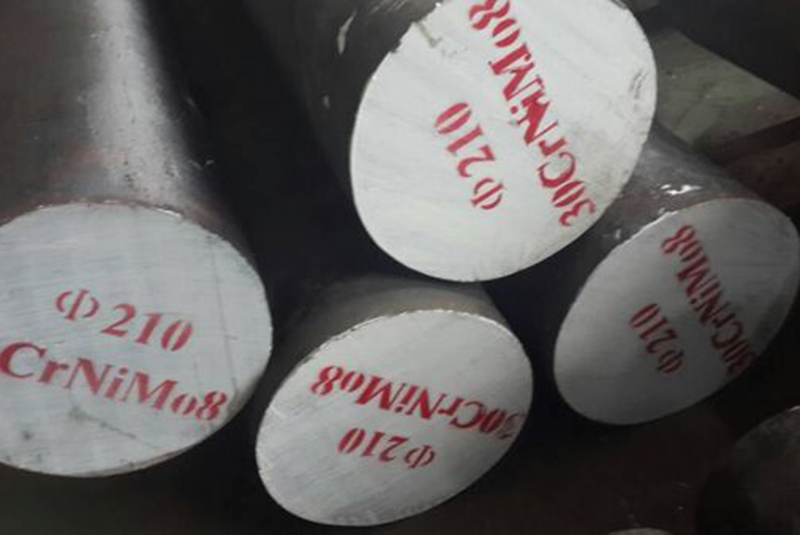
Advantages and Limitations
Advantages and Limitations of Special Steel 18CrNiMo7-6 and 17CrNiMo6 (1.6587) Alloy Steel
| Parameter | 18CrNiMo7-6 | 17CrNiMo6 (1.6587) |
|---|---|---|
| Advantages | High strength, excellent hardenability, superior wear resistance, tough core | High strength, good machinability, high toughness, suitable for heavy-duty applications |
| Limitations | Higher cost, requires precise heat treatment | Higher cost, limited availability in some regions |
The Advantages of Special Steel 18CrNiMo7-6 and 17CrNiMo6 (1.6587) Alloy Steel
1. High Strength
When you think of strength, imagine a weightlifter hoisting an enormous barbell. Special steels like 18CrNiMo7-6 and 17CrNiMo6 (1.6587) are the heavyweights in the steel world. Their high tensile and yield strength make them ideal for components that bear heavy loads and stress.
2. Excellent Hardenability
These steels can be hardened to a significant depth, ensuring a hard surface while maintaining a tough core. This is like having a candy with a hard shell and a soft center – the perfect combination for durability and toughness.
3. Superior Wear Resistance
Thanks to their chemical composition, these steels resist wear and tear exceptionally well. Think of them as the marathon runners of the material world, enduring long periods of friction and use without significant wear.
4. Tough Core
Despite their hard exterior, the core remains tough, which is crucial for components subjected to shocks and heavy impacts. Imagine a footballer who is strong on the outside but can also absorb and withstand rough tackles – that’s what these steels offer.
5. Good Machinability
Despite their strength, these steels are relatively easy to machine. It’s like having a robust but cooperative team member who is not only strong but also flexible and easy to work with.
Specifications of Special Steel 18CrNiMo7-6 and 17CrNiMo6 (1.6587) Alloy Steel
Technical Specifications
The technical specifications of these special steels ensure they meet the rigorous demands of various applications. Here’s a closer look at their specs:
| Specification | 18CrNiMo7-6 | 17CrNiMo6 (1.6587) |
|---|---|---|
| Tensile Strength | 1000-1300 MPa | 1000-1300 MPa |
| Yield Strength | 800-1000 MPa | 800-1000 MPa |
| Hardness |
Heat Treatment Processes
The heat treatment processes for these steels include carburizing, hardening, and tempering. These processes enhance their mechanical properties, making them suitable for heavy-duty applications. It’s like tempering chocolate – the right process ensures the best quality and performance.

Comparative Analysis
When comparing 18CrNiMo7-6 and 17CrNiMo6 (1.6587), it’s like comparing two top athletes. Both have their strengths and unique characteristics, making them suitable for specific applications.
Strength and Toughness
Both steels exhibit high strength and toughness, but 18CrNiMo7-6 slightly edges out in terms of hardenability. If you need a steel that can be hardened deeply, 18CrNiMo7-6 is your go-to option.
Wear Resistance
In terms of wear resistance, both steels are on par. Their high chromium and molybdenum content ensure they can withstand significant friction and wear. It’s like choosing between two equally durable running shoes.
Machinability
When it comes to machinability, 17CrNiMo6 (1.6587) has a slight advantage. It’s a bit easier to machine, which can be beneficial in complex manufacturing processes. Think of it as a slightly more cooperative player on a team.
Cost and Availability
Both steels are relatively expensive due to their high performance. However, availability can be an issue for 17CrNiMo6 (1.6587) in some regions. It’s like having a high-demand product that’s sometimes hard to find.
FAQ
| Question | Answer |
|---|---|
| What are the main applications of these special steels? | They are primarily used in gear manufacturing, shafts, axles, heavy machinery parts, automotive components, and aerospace industry. |
| What makes these steels different from other alloy steels? | Their unique chemical composition and heat treatment processes give them high strength, toughness, and wear resistance. |
| Are these steels difficult to machine? | Despite their high strength, these steels have good machinability, making them easier to work with compared to other high-strength alloys. |
| Why are these steels more expensive? | The higher cost is due to their superior mechanical properties and the complex manufacturing processes involved. |
| What are the heat treatment processes involved? | The processes include carburizing, hardening, and tempering to enhance their mechanical properties. |
| How do they compare to other alloy steels in terms of performance? | They offer better hardenability, wear resistance, and toughness compared to many other alloy steels. |

